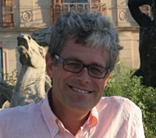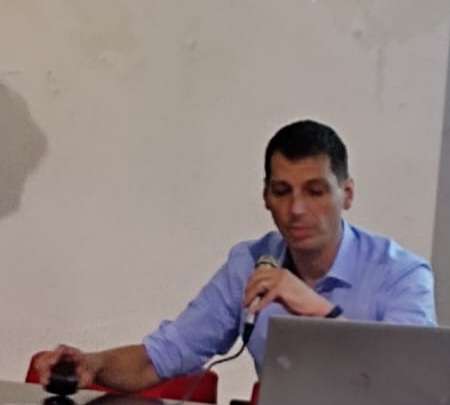Studying at the University of Verona
Here you can find information on the organisational aspects of the Programme, lecture timetables, learning activities and useful contact details for your time at the University, from enrolment to graduation.
Academic calendar
The academic calendar shows the deadlines and scheduled events that are relevant to students, teaching and technical-administrative staff of the University. Public holidays and University closures are also indicated. The academic year normally begins on 1 October each year and ends on 30 September of the following year.
Course calendar
The Academic Calendar sets out the degree programme lecture and exam timetables, as well as the relevant university closure dates..
| Period | From | To |
|---|---|---|
| CuCi IA | Sep 21, 2020 | Oct 31, 2020 |
| CuCi IB | Nov 9, 2020 | Jan 9, 2021 |
| CuCi IIA | Feb 15, 2021 | Apr 1, 2021 |
| CuCi IIB | Apr 14, 2021 | May 29, 2021 |
| Session | From | To |
|---|---|---|
| sessione d'esame invernale CuCi | Jan 11, 2021 | Feb 13, 2021 |
| sessione d'esame estiva CuCi | Jun 7, 2021 | Jul 24, 2021 |
| sessione d'esame autunnale CuCi | Aug 23, 2021 | Sep 18, 2021 |
| Session | From | To |
|---|---|---|
| sessione di laurea invernale 19-20 | Apr 7, 2021 | Apr 13, 2021 |
| sessione di laurea estiva 20-21 | Jul 5, 2021 | Jul 10, 2021 |
| Sessione autunnale di laurea a.a. 2020/21 | Nov 8, 2021 | Nov 13, 2021 |
| Sessione straordinaria di laurea a.a. 2020/21 | Mar 28, 2022 | Apr 2, 2022 |
| Period | From | To |
|---|---|---|
| Festa di Ognissanti | Nov 1, 2020 | Nov 1, 2020 |
| Chiusura Ateneo ponte Immacolata | Dec 7, 2020 | Dec 7, 2020 |
| Festa dell'Immacolata | Dec 8, 2020 | Dec 8, 2020 |
| Vacanze di Natale | Dec 24, 2020 | Jan 6, 2021 |
| Vacanze di Pasqua | Apr 2, 2021 | Apr 6, 2021 |
| Festa della liberazione | Apr 25, 2021 | Apr 25, 2021 |
| Festa del lavoro | May 1, 2021 | May 1, 2021 |
| Festa del Santo Patrono | May 21, 2021 | May 21, 2021 |
| Sospensione delle lezioni | May 22, 2021 | May 22, 2021 |
| Festa della Repubblica | Jun 2, 2021 | Jun 2, 2021 |
| Vacanze estive | Aug 9, 2021 | Aug 15, 2021 |
Exam calendar
Exam dates and rounds are managed by the relevant Culture and Civilisation Teaching and Student Services Unit.
To view all the exam sessions available, please use the Exam dashboard on ESSE3.
If you forgot your login details or have problems logging in, please contact the relevant IT HelpDesk, or check the login details recovery web page.
Should you have any doubts or questions, please check the Enrollment FAQs
Academic staff

Bassetti Massimiliano
 massimiliano.bassetti@univr.it
massimiliano.bassetti@univr.it
 045802 8376
045802 8376
 riccardo.bertolazzi@univr.it
riccardo.bertolazzi@univr.it
 stefania.cretella@univr.it
stefania.cretella@univr.it
 dario.donetti@univr.it
dario.donetti@univr.it
 vincenzo.giannotti@univr.it
vincenzo.giannotti@univr.it
 piergiovanna.grossi@univr.it
piergiovanna.grossi@univr.it
 elisa.lerco@univr.it
elisa.lerco@univr.it
 francesco.lupi@univr.it
francesco.lupi@univr.it

Mastrocinque Attilio
 attilio.mastrocinque@univr.it
attilio.mastrocinque@univr.it
 +39 045802 8386
+39 045802 8386
 marco.menato@univr.it
marco.menato@univr.it
 alberto.scandola@univr.it
alberto.scandola@univr.it
 cecilia.sideri@univr.it
cecilia.sideri@univr.it
 carlo.vannini@accademiabelleartiverona.it
carlo.vannini@accademiabelleartiverona.it
Study Plan
The Study Plan includes all modules, teaching and learning activities that each student will need to undertake during their time at the University.
Please select your Study Plan based on your enrollment year.
1° Year
| Modules | Credits | TAF | SSD |
|---|
1 module to be chosen among the following2° Year activated in the A.Y. 2021/2022
| Modules | Credits | TAF | SSD |
|---|
1 module to be chosen among the following2 modules to be chosen among the following3 modules to be chosen among the following3° Year activated in the A.Y. 2022/2023
| Modules | Credits | TAF | SSD |
|---|
1 module to be chosen among the following1 module to be chosen among the following3 modules to be chosen among the following| Modules | Credits | TAF | SSD |
|---|
1 module to be chosen among the following| Modules | Credits | TAF | SSD |
|---|
1 module to be chosen among the following2 modules to be chosen among the following3 modules to be chosen among the following| Modules | Credits | TAF | SSD |
|---|
1 module to be chosen among the following1 module to be chosen among the following3 modules to be chosen among the following| Modules | Credits | TAF | SSD |
|---|
Legend | Type of training activity (TTA)
TAF (Type of Educational Activity) All courses and activities are classified into different types of educational activities, indicated by a letter.
Type D and Type F activities
| years | Modules | TAF | Teacher |
|---|---|---|---|
| 1° 2° 3° | Castelvecchio Lectures (City Art Museums) | F |
Alessandra Zamperini
(Coordinator)
|
| 1° 2° 3° | C.T.G. Lectures | F |
Alessandra Zamperini
(Coordinator)
|
| 1° 2° 3° | Giornata mondiale della poesia | F |
Arnaldo Soldani
(Coordinator)
|
| 1° 2° 3° | Giovedì' culturali dell'ISSR I ciclo | F |
Tiziana Franco
(Coordinator)
|
| 1° 2° 3° | The Unesco World Heritage Sites | F |
Silvana Bianchi
(Coordinator)
|
| 1° 2° 3° | Il testo en abyme: rappresentazioni della scrittura nell’Europa romantica - Convegno internazionale del CRIER - 5-6 novembre 2020 | F |
Corrado Viola
(Coordinator)
|
| 1° 2° 3° | Orientaday | F |
Tiziana Franco
(Coordinator)
|
| years | Modules | TAF | Teacher |
|---|---|---|---|
| 1° 2° 3° | Castelvecchio Lectures (City Art Museums) | F |
Alessandra Zamperini
(Coordinator)
|
| 1° 2° 3° | Convegno su carlo gozzi nel terzo centenario della nascita | F |
Nicola Pasqualicchio
(Coordinator)
|
| 1° 2° 3° | C.T.G. Lectures | F |
Alessandra Zamperini
(Coordinator)
|
| 1° 2° 3° | Giovedì' culturali dell'ISSR I ciclo | F |
Tiziana Franco
(Coordinator)
|
| 1° 2° 3° | How to write your dissertation | F |
Alessandro Arcangeli
(Coordinator)
|
| years | Modules | TAF | Teacher | |
|---|---|---|---|---|
| 1° | Introduction to the study of decorative arts | F |
Valerio Terraroli
(Coordinator)
|
|
| 1° 2° 3° | Attivita' FAI | F | Not yet assigned | |
| 1° 2° 3° | Practical exercises for the recognition of works of art | - |
Enrico Dal Pozzolo
(Coordinator)
|
|
Assyriology (i) (2021/2022)
Teaching code
4S02129
Academic staff
Coordinator
Credits
6
Language
Italian
Scientific Disciplinary Sector (SSD)
L-OR/03 - ASSYRIOLOGY
Period
2 B dal Apr 4, 2022 al Jun 4, 2022.
Learning outcomes
The knowledge of the cultures, geographical environments, major phases and historical events of Near Eastern history is part of the study of ancient history envisaged in the didactic paths of the MA in Literature and Cultural Heritage. The introductory course aims to get acquainted with the main historical sources related to the Near Eastern world from prehistory till the pre-classical period, the basic methodologies for their analysis, as well as the essential bibliography and some of the most recent historiographic orientations on the topics discussed.
At the end of the course the student is expected to acquire the basic tools and the ability to orient himself in this wide field of ancient history and to relate it to the Mediterranean one, applying the knowledge acquired in order to gain a full understanding of the dynamics that characterized the formation of ancient civilizations and their subsequent heritage.
Program
The first part of the course provides a general presentation of the contexts of written production in the Syro-Mesopotamian area beginning with the origin of writing and illustrating the main textual collections and archives and the various types of texts preserved. Main part of the course is devoted to the study of the Akkadian language (Assyro-Babylonian) and its main grammatical elements, in order to allow the students to read and translate a selection of texts with progressive grammatical complexity. The classes are integrated by a seminar especially designed to guide to and train the students in the reading and interpretation of the texts in Akkadian. The seminar includes basic notions of cuneiform and practical exercises on grammatical rules.
Bibliography
Examination Methods
Final oral assessment. Purposes of the assessment are to verify the acquired knowledge; language skills; ability of textual analysis.
The assessment will consist of questions on the topics treated during the course, on bibliography indicated dutring the lessons, the texts studied, those of the seminar included, and synthesis provided in the slides. The evaluation is expressed in thirtieths.
Not attending students and Erasmus students are kindly requested to contact the teacher at the beginning of the course in order to agree on the programme and assessment modalities.
Career prospects
Module/Programme news
News for students
There you will find information, resources and services useful during your time at the University (Student’s exam record, your study plan on ESSE3, Distance Learning courses, university email account, office forms, administrative procedures, etc.). You can log into MyUnivr with your GIA login details: only in this way will you be able to receive notification of all the notices from your teachers and your secretariat via email and soon also via the Univr app.
Graduation
List of theses and work experience proposals
| theses proposals | Research area |
|---|---|
| Ambiti di tesi | Art & Architecture - Art & Architecture |
| Stage | Research area |
|---|---|
| Lavorare in archivio | Various topics |















































